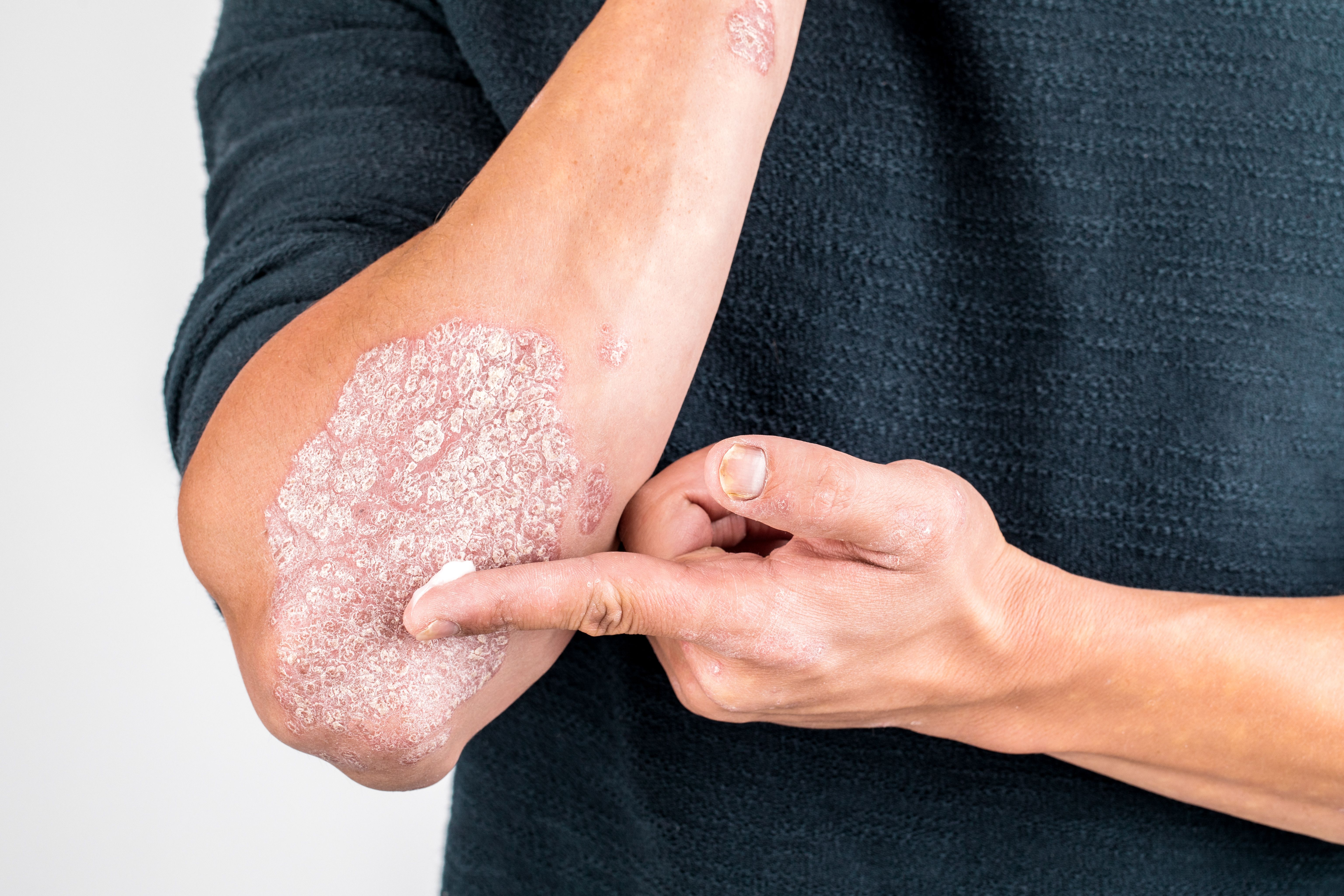- Acne
- Actinic Keratosis
- Aesthetics
- Alopecia
- Atopic Dermatitis
- Buy-and-Bill
- COVID-19
- Case-Based Roundtable
- Chronic Hand Eczema
- Chronic Spontaneous Urticaria
- Drug Watch
- Eczema
- General Dermatology
- Hidradenitis Suppurativa
- Melasma
- NP and PA
- Pediatric Dermatology
- Pigmentary Disorders
- Practice Management
- Precision Medicine and Biologics
- Prurigo Nodularis
- Psoriasis
- Psoriatic Arthritis
- Rare Disease
- Rosacea
- Skin Cancer
- Vitiligo
- Wound Care
Article
Psoriasis stress response in vitro
Author(s):
Richard D. Granstein, M.D., chairman of dermatology, Weill Cornell Medical College, New York, has conducted research on how the nervous system and, perhaps, stress can make psoriasis worse or control the phenotypic expression of psoriasis.
Richard D. Granstein, M.D., chairman of dermatology, Weill Cornell Medical College, New York, has conducted research on how the nervous system and, perhaps, stress can make psoriasis worse or control the phenotypic expression of psoriasis.
“Something which is often overlooked is that the expression of psoriasis on humans depends on innervation,” Dr. Granstein says.
First, some background: Researchers discovered some 40 years ago that if the nerve supply to areas of skin bearing psoriasis is interrupted - either surgically or from an accident - the psoriasis improves or goes away in that area. About the same time, it was also shown that local anesthetics injected into psoriatic lesions will improve them or make them resolve.
Two more recent mouse models of psoriasiform dermatitis offer clinical evidence suggesting the important role nerves play in the pathogenesis of psoriasis.
“In these two mouse models, if you interrupt the nerve supply to the area of mouse skin that has the psoriasiform dermatitis, it gets better,” Dr. Granstein says.
While it’s not completely clear how this comes about, Dr. Granstein and colleagues have shown that by treating Langerhans cells with the neuropeptides vasoactive intestinal polypeptide and pituitary adenylate cyclase-activating polypeptide and allowing the Langerhans cells to present antigen in vitro to responsive T cells, the result is skewed towards the generation Th17-type helper T cells.
“The reason this is relevant to psoriasis is it is believed that Th17 cells and the interleukin (IL)-17 family of cytokines are important in the pathogenesis of psoriasis,” he says.
Furthermore, the researchers have shown that treating human endothelial cells with norepinephrine (a sympathetic nerve transmitter) and adenosine-5’-triphosphate (or ATP, also a sympathetic nerve transmitter) causes the cells to produce the cytokine IL-6.
“This may be relevant because IL-6 is also an important factor in the differentiation of Th17 cells,” Dr. Granstein says. “So, to bring stress into it, one might imagine that under conditions of stress, the sympathetic nervous system is activated … and then norepinephrine and ATP are released by the sympathetic nervous system, which innervates blood vessels in the skin and also innervates lymphoid organs, such as lymph nodes … Then, release of norepinephrine and ATP may induce endothelial cells to release more IL-6, which may then skew local immunity towards the Th17/IL-17 and thereby make psoriasis worse. It’s just a hypothesis, but I think it’s interesting.”
Newsletter
Like what you’re reading? Subscribe to Dermatology Times for weekly updates on therapies, innovations, and real-world practice tips.









